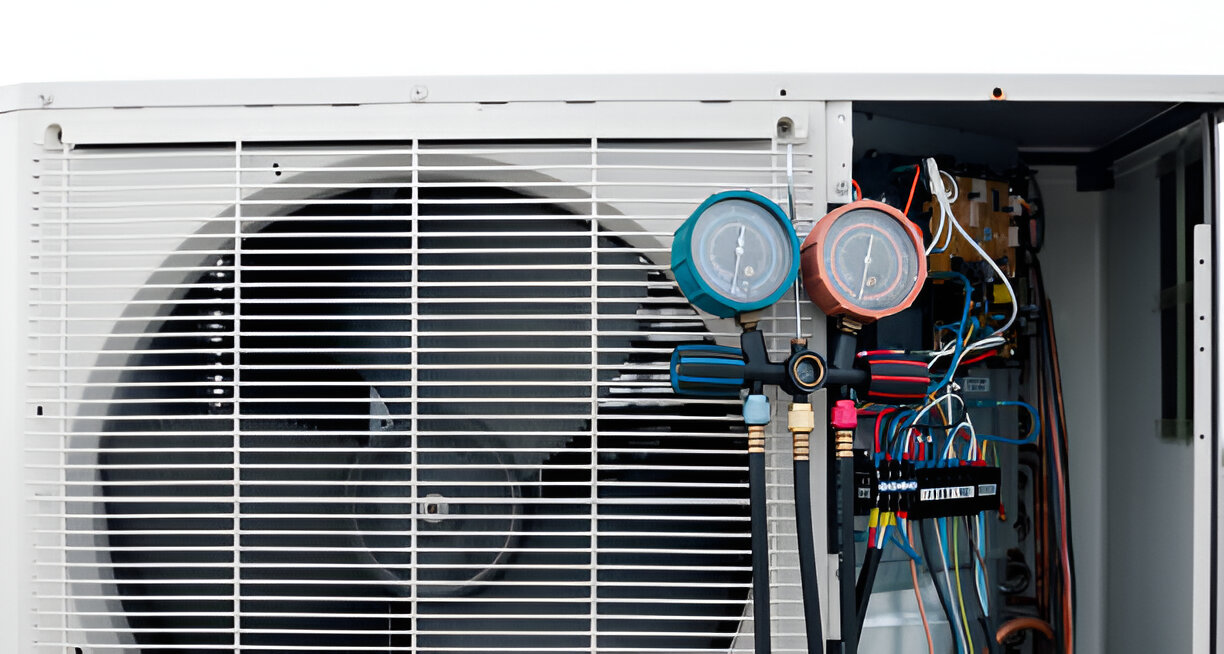
Heat Pump Installation in Delta, PA
Upgrading to a heat pump is one of the most effective ways to get reliable year-round comfort while lowering energy use. For homeowners in Delta, PA, where cold winters and humid summers place dual demands on heating and cooling systems, a properly sized and professionally installed heat pump delivers steady indoor temperatures, improved efficiency, and simpler maintenance than separate furnace and AC systems.
Why a heat pump makes sense in Delta, PA
Delta sits in a climate with cold winters and warm, humid summers. Modern heat pumps, including cold-climate models and hybrid configurations, can handle Pennsylvanian winters while providing efficient cooling in summer. Benefits for Delta homes include:
- Consistent heating and cooling from a single system
- Lower operating costs compared with older electric resistance heating or aging systems
- Cleaner indoor air when combined with proper filtration and balanced ductwork
- Viable options for homes without ducts using ductless mini-split systems
Common heat pump options for Delta homes
Choosing the right equipment is critical. Primary options include:
- Air-source heat pumps: Most common choice for year-round heating and cooling. Modern units offer excellent efficiency and good cold-weather performance.
- Ductless mini-split systems: Ideal for older homes or additions that lack ductwork. Provide room-by-room control and high efficiency.
- Hybrid systems (heat pump + furnace): Combine heat pump efficiency with a gas or oil furnace backup for very cold days, common in regions with occasional deep cold snaps.
Typical issues seen with heat pump installations in Delta, PA
Being aware of frequent problems helps you make better decisions and avoid costly callbacks:
- Undersized or oversized equipment causing short cycling or insufficient comfort
- Poorly sealed or undersized ductwork reducing efficiency and comfort
- Incorrect refrigerant charge or airflow leading to low heating capacity in cold weather
- Improper outdoor unit placement causing snow/ice buildup or reduced airflow
- Inadequate electrical service or improper disconnect placement
- No backup strategy for extreme cold if using a standard heat pump without hybrid backup
Initial consultation and home assessment
A professional installation starts with a thorough home assessment:
- Load calculation: A Manual J or equivalent sizing analysis factors in home size, insulation, window type, orientation, and occupancy to determine correct capacity.
- Duct evaluation: Inspect for leaks, insulation levels, and airflow. Duct sealing or resizing is recommended when necessary.
- Site survey: Identify optimal outdoor unit location for airflow and service access, and assess indoor unit placement for even distribution.
- Electrical check: Confirm existing panel capacity and plan for any electrical upgrades or dedicated circuits.
- User goals: Discuss comfort preferences, zone control needs, and long-term plans (for example, whether you want future electrification or hybrid options).
Equipment selection explained simply
When deciding between air-source, ductless, or hybrid:
- Choose air-source if you have existing ductwork in good condition and want whole-home comfort from one system.
- Choose ductless mini-splits if you have rooms or additions without ducts, or if you want zoned control and high efficiency.
- Choose a hybrid system if you have a fuel source for a furnace and want guaranteed heat during the coldest days while maximizing heat pump efficiency most of the year.
Look for efficiency metrics explained plainly:
- SEER and EER indicate cooling efficiency
- HSPF indicates heating efficiency
- Cold-climate ratings show guaranteed heating performance at lower temperatures
Professional installation steps
A quality installation follows a clear sequence:
- Site preparation: Level and pad the outdoor unit, ensure proper clearances, and plan cable and refrigerant routing.
- Ductwork or mounting: Repair, seal, or modify ducts if needed. For ductless systems, mount indoor heads where airflow will cover the space efficiently.
- Refrigerant lines and condensate: Run properly insulated line sets, set traps in condensate drains, and verify routing minimizes potential leaks.
- Electrical connections: Install disconnects, breakers, and proper grounding to code.
- Mounting and securing: Anchor outdoor and indoor components for vibration control and longevity.
- Controls and thermostat: Install a compatible thermostat or system controller and integrate zoning if selected.
Commissioning and performance testing
Commissioning validates performance before the installer leaves:
- Verify refrigerant charge and pressures based on manufacturer specs
- Measure supply and return temperatures and airflow balance
- Test electrical load and safety devices
- Confirm defrost cycles function correctly on cold days
- Program controls, verify Wi Fi or smart control setup if present, and demonstrate system operation
Proper commissioning ensures the system meets rated capacity and operates efficiently in Delta conditions.
Homeowner orientation and maintenance recommendations
Before final signoff, expect a clear orientation:
- Walkthrough of how to operate the system, set schedules, and adjust zones
- Explanation of filter types and replacement intervals
- Guidance for seasonal checks such as outdoor unit snow/ice clearance and indoor condensate drain inspection
- Schedule for routine maintenance: at minimum annual inspections for heating season and cooling season checks if possible
Regular maintenance keeps efficiency high and helps avoid common Delta-area problems like ice buildup or reduced airflow during humidity extremes.
Warranty coverage and documentation
Standard warranty elements typically include:
- Manufacturer parts warranty (length varies by model)
- Compressor warranty (often longer term)
- Labor warranty from the installing contractor (specify duration in writing)
- Proper documentation: Save equipment manuals, warranty cards, and commissioning reports to preserve coverage
Confirm warranty conditions require professional installation and periodic maintenance to remain valid.
Long-term benefits and local relevance
For Delta, PA homeowners, a well-installed heat pump provides reliable comfort through humid summers and cold winters while lowering overall energy costs and carbon footprint. Choosing the correct system type for your home, ensuring meticulous installation, and following a documented maintenance schedule will maximize efficiency, sustain warranty coverage, and preserve indoor comfort for years to come.


Enjoy flexible financing options that make upgrading or repairing your HVAC system easy and budget-friendly.










